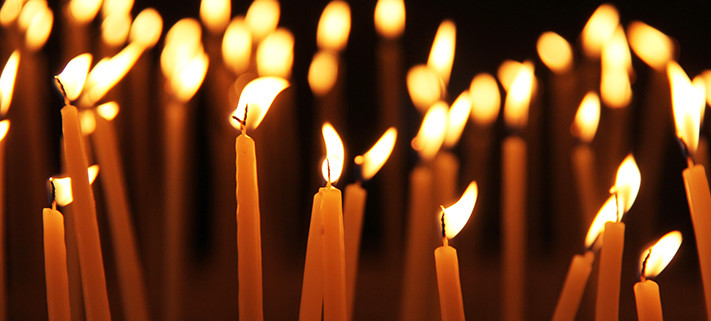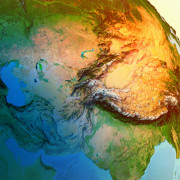Death, terror, justice
Death, terror, justice
John A. Braun
The tragedy that erupts at the end of a pistol or Kalashnikov stains us all with blood and sorrow. These things ought not to be, but they are. Bouquets of flowers, makeshift memorials, and notes of sympathy grow in Paris, New York, Boston, and many other cities. They sprout where blood stains the place of sudden death.
We have not yet seen the end of such scenes. They will be repeated because we are all human and live in a world flawed by human depravity. We are all infected by a virus that tilts us toward evil. Brutality and violence flow from that virus. We see it not only in the attacks of terrorists. We also see it in domestic violence, bullying, destruction of property, and a wanton disregard for anything or anyone else. In other words, we may point a finger at the worst outbreaks of the virus, but we are also infected.
One of the greatest tragedies is to inflict pain and misery in the name of God on those who do not share our beliefs. We might ask, “Is our concept of God so bankrupt that we believe that he needs our bullets to enforce his will?” Other questions also come to mind: Do we have such a small capacity to love others and see value in them? Do we have a too large and arrogant opinion of ourselves that we can inflict death, pain, and misery on others? Do we value human life only when it belongs to those who think as we do?
We pause at the memorials that suddenly appear at scenes of tragedy. We pause. We shed tears for the victims. Our tears concede that some have a profound lack of consideration, respect—yes, a lack of love. In our tears we mourn for those who have lost faith in a loving God and disregard his will. Through our blurry eyes we catch a glimpse of the flawed world in which we live. Perhaps when our vision clears, we long to see the perfect world our Savior has promised after we leave tears and sorrow behind.
To shed a tear at another’s loss is not a hopeless desperation, a resignation to the victory of that human virus. The tears demonstrate compassion for others, whether or not they agree with our convictions and orientation. I hope they help us see our purpose here. Compassion. To hold the hand of another sobbing human in silent support makes us God’s instruments. Compassion for another human in pain is not an exclusive Christian virtue. Others have it too. It is human. Such kindness is an end in itself. It helps another. It should have no ulterior motive but to show respect, love, and concern for another.
Yet as children of God we sense another purpose. God may turn tears and pain into an opportunity to share the reason for the hope we have. Then, humbly, we may also speak with gentleness and respect about our Savior (1 Peter 3:15).
When we raise our eyes from the sorrow, dry our tears, and look forward, we sense a need for justice. But we may not take vengeance on our own no matter how deep the pain. God grants the sword of justice to governmental power to protect those remaining after tragedy and to make it difficult for brutal slaughter to reoccur. Such justice here on earth curbs the worst outbreaks of the virus within. But it will not eliminate every sorrow. That remains for God to administer when he brings absolute and perfect justice to all. Then believers will have no tears.
SUBMIT YOUR STORY
Do you have a manuscript, idea, or story from your own life you’d like to share for use in Forward in Christ or on wels.net? Use our online form to share it to our editorial office for consideration.
SUBSCRIBE TO FORWARD IN CHRIST
Get inspirational stories, spiritual help, and synod news from Forward in Christ every month. Print and digital subscriptions are available from Northwestern Publishing House.
Author: John A. Braun
Volume 103, Number 1
Issue: January 2016
Copyrighted by WELS Forward in Christ © 2021
Forward in Christ grants permission for any original article (not a reprint) to be printed for use in a WELS church, school, or organization, provided that it is distributed free and indicate Forward in Christ as the source. Images may not be reproduced except in the context of its article. Contact us




